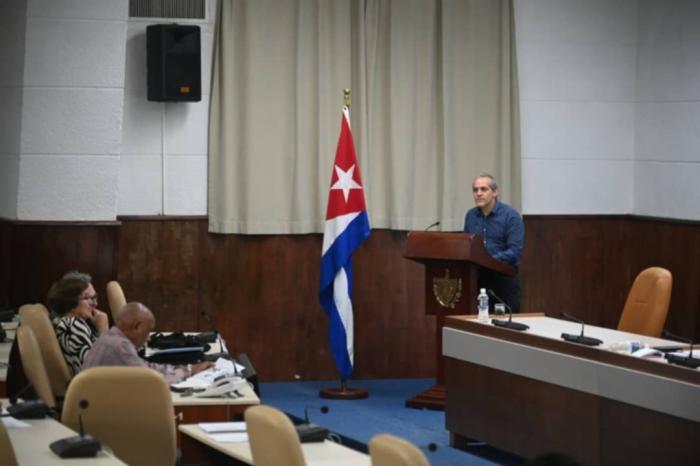The meeting of the National Innovation Council held in October examined in depth the draft Science, Technology and Innovation Act, on which a wide-ranging debate has begun throughout the nation. The meeting was chaired by the president of this consultative body of the State, the First Secretary of the Central Committee of the Communist Party and President of the Republic, Miguel Díaz-Canel Bermúdez.
The development of science, technology and innovation in Cuba, as one of the three pillars of the government management system, has an increasingly prominent role in the country’s development.
In this respect, the President considered that the law finally adopted must resolve the remaining obstacles to the development of science, technology and innovation; fill gaps in legislation to support certain processes in these areas; and to respond to the aspirations which our scientists have systematically raised at the various meetings held.
It also meant the need to ensure that «in a definitive way, science, technology and innovation in the country become an important force in economic and social development».
On the consultation process to which the text will be submitted, the Head of State insisted that it should be as broad as possible, «first covering the entire science, technology and innovation sector of the country and also having the visions of other sectors». «I am convinced, he said, that this Preliminary Draft will be greatly strengthened with everything we can contribute from that debate».
When presenting the Preliminary Draft, the Minister of Science, Technology and Environment (CITMA), Armando Rodríguez Batista, said that the working group formed for its elaboration had a wide representation of scientists, innovators, educators, as well as specialists from key central government agencies such as the Ministries of Public Health, Agriculture, Justice and CITMA.
As a result of the diagnosis carried out, the Minister assured that it was possible to verify elements such as the lack of an integrated normative provision for science, technology and innovation; an inefficient contribution of business financing and scarce financing in foreign currency; lack of a human potential development programme; inadequate integration of social sciences and humanities with natural sciences; insufficient training of managers and officials responsible for the management and direction of science, technology and innovation activities; and the non-alignment of these activities with development strategies at each level.
On the broad consultation initiated in recent days, he considered that it has been conceived as a process of collective construction of the law that will cover all the provinces of the country and the special municipality Isla de la Juventud.
Following the presentation by the Minister of CITMA, several members of the National Innovation Council presented valuable criteria to help strengthen the text produced, which was generally assessed as very solid.
Among other topics, the need to develop innovative schemes for the evaluation of activities was stressed; give due priority to social sciences; enhance digital transformation; properly prepare cadres, as well as strengthen participatory democracy; to achieve an integral implementation of the postulates that define the bases of a text that has been designed for the whole society.
Seeking to respond to the problems identified, the Minister explained that some twenty principles had been defined, which are the basis of the Preliminary Draft. Highlighted, among others: issuing a legal document of the highest rank of the legal norms that have emerged in recent years; moving towards a strengthened Science, Technology and Innovation system, characterized by governance that favors synergy between the actors that make up it; periodically evaluate, at all levels, the system of Science, Technology and Innovation; create an integral program for human potential development, as well as recognize as a category of Entity of Science, Technology and Innovation to innovative companies.
The proposal, he detailed, is that the Law be made up of eight chapters and that it cover all levels and include a wide diversity of actors.
In particular, he emphasized the importance of combining innovation, transition to a knowledge economy and international integration of Cuban science in the document.
He added that a set of provisions of varying rank will remain in force, addressing specific aspects of the Science, Technology and Innovation System already updated, and which are in line with the principles advocated in the current Preliminary Draft.
About the consultation process carried out so far, he explained that it involved some 1,500 people including academics, researchers, students, entrepreneurs, teachers, government authorities and others; noting that it was an ideal moment for each of these sectors to contribute to the construction of the Preliminary Draft.

















